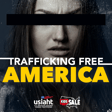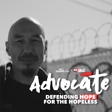
Advocate Series Ep. 3 | Made in God’s Image: Worth, Love, and Breaking Exploitation
About this Episode:
What gives a person their worth? In this episode of the Advocate Series, Francis Chan and survivors reveal how traffickers exploit broken identities—and how the truth that we are made in God’s image can restore hope, value, and freedom. Watch full series here.
Full Description:
Episode 3 of the Advocate Series exposes one of the trafficker’s most powerful weapons: distorted worth and counterfeit love. Survivors share raw testimonies of being dehumanized and coerced, while pastor Francis Chan reminds us that true value comes from being made in the image of God.
Through stories of pain, resilience, and redemption, this episode explores how unconditional, patient, and consistent love—rooted in Christ—can break exploitation and restore lives. It’s a call for the Church to not just recognize trafficking but to live out real, sacrificial love in homes, communities, and congregations.
🔔 Subscribe to Trafficking Free America and join us in defending hope for the hopeless.
🕒 Episode Timestamps
0:00 – Introduction
0:48 – Humanity made in God’s image
2:01 – The lies of worldly worth vs. God’s truth
2:58 – Love as Jesus commanded: turning away loneliness and evil
3:45 – How traffickers exploit identity and worth
4:26 – Victims who don’t see themselves as victims
5:09 – Why boys are often left out of the conversation
5:53 – Predators target the vulnerable and traumatized
6:42 – Recognizing the signs of trafficking in everyday life
7:44 – The Church’s responsibility: proactive, not reactive
8:47 – Trafficking myths vs. reality (not like Taken)
9:53 – Survivor story: a mother’s betrayal and cycles of abuse
12:10 – Discovering the truth: “It wasn’t my fault”
15:33 – The chase for love traffickers prey upon
17:24 – Families and communities showing consistent, unconditional love
18:40 – Group home story: consistent love that changed a life
22:15 – Choosing survivor identity over victimhood
23:12 – Oree's redemption story and the rarity of breakthrough
25:16 – Equipping the Church: showing true love in families and communities
26:22 – Valuing others—and yourself—as made in God’s image

